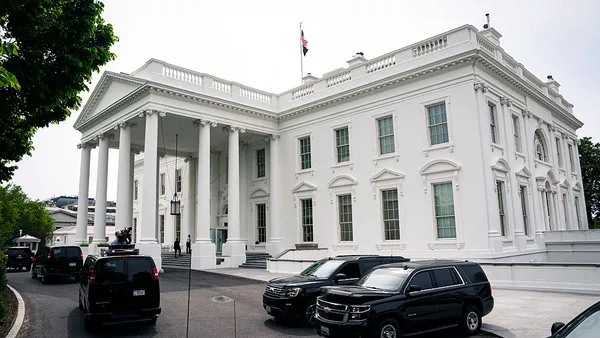Dive Brief:
- The Texas Senate on Wednesday approved a package of energy reforms including a $10 billion “energy insurance program” that aims to shore up grid reliability through development of a fleet of new gas-fired power plants capable of providing 10,000 MW.
- SB 6 passed 22-9, but it faces broad opposition from the power sector and conservation advocates for its changes to the state’s electricity market and environmental impacts. Uncertainty over the plan’s cost could threaten the measure’s chances in the Texas House of Representatives.
- Berkshire Hathaway Energy supports the legislation, and experts say the company is a leading contender to win contracts to build the backup generation. But for smaller generators, SB 6 could make Texas a less attractive investment.
Dive Insight:
Gas-fired generator WattBridge is spending billions to construct Texas power plants, but officials say when this round of investment is over, the company may be finished with the state.
“Once we complete our facilities currently under construction ... we do not anticipate investing any further” in the Electric Reliability Council of Texas market, WattBridge President Mike Alvarado told Texas senators at a March 23 hearing on SB 6.
“The current market conditions simply don't allow it. And the legislation proposed by the Senate makes the current market that much more challenging for our business and provides additional conviction to our decision to cease our current investment program in ERCOT and begin to look in other markets,” Alvarado said.
SB 6 would establish the Texas Energy Insurance Program outside of the competitive market, while another bill passed by the Senate, SB 7, would create a new ancillary service for dispatchable generators while also imposing new fees.
“The Senate’s grid reform package levels the playing field between dispatchable and renewable energy sources by elevating dispatchable energy sources to put ratepayers first,” Texas Lt. Gov. Dan Patrick said in a statement. SB 6 also creates a low-interest loan program to maintain older dispatchable generation plants, he added.
The bill’s sponsor, Sen. Charles Schwertner, R, says the new capacity will not cause problems for the the state's energy-only market because the 10,000 MW would not run until grid conditions require them.
The plants could receive a regulated rate of return up to 10%, Bloomberg reports.
Michele Richmond, executive director of the Texas Competitive Power Advocates, said the bill is a “fundamental U-turn away from the competitive electric market.”
“It represents a costly tax on consumers that does not improve reliability or make the market economic for dispatchable resources — the new or the existing ones,” she said.
Julia Rathgeber, representing Berkshire Hathaway Energy in support of the bill, called the legislation an “opportunity to invest in Texas.”
Parts of SB 6 are similar to a measure Berkshire Hathaway Energy supported in the last legislative session to construct emergency generation, Rathberger said, but the newest iteration is “broader in its scope” and includes the maintenance of older generation.
“SB 6 can also work with other market reforms, such as the performance credit mechanism,” Rathberger said.
The Public Utility Commission of Texas in January endorsed a new performance credit mechanism as part of an overhaul of the state’s energy market. It must still be implemented by lawmakers, and critics say it could cost consumers up to $5.7 billion annually with uncertain improvements to reliability.
Rising energy costs in Texas are a major concern. A Lower Colorado River Authority slide deck obtained by Austin NPR station KUT 90.5 estimates the cost of the SB 6 energy insurance program could be as high as $18 billion.
“These bills are part of a package of legislation that could grind renewable energy development in Texas to a halt,” Environment Texas Executive Director Luke Metzger said in a statement. “That would mean more air pollution threatening our health and higher electric costs. Any one of these bills alone would hurt renewables, but together they could kneecap the entire industry. We’re counting on the state House to reject these.”















